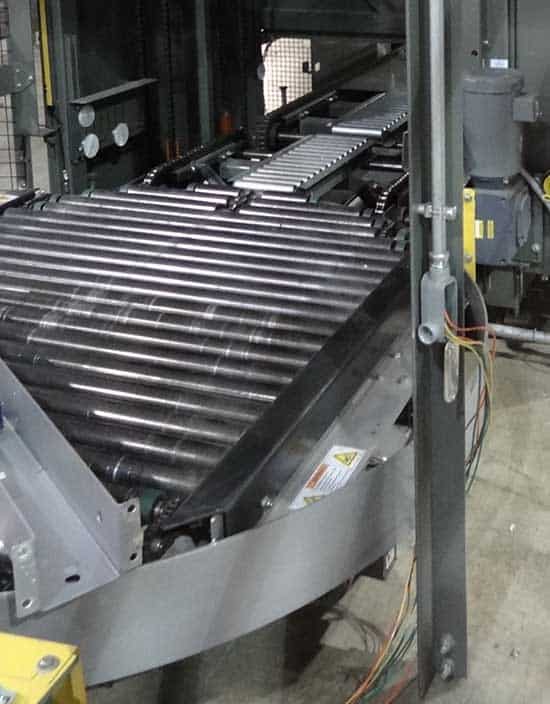Roller Conveyors
Roller conveyors use rollers, bearings, and a little bit of gravity to transport products and materials. They are commonly used in manufacturing, warehousing, and distribution centers to move items efficiently and accurately.
Benefits
One of the main benefits of using a roller conveyor is its versatility. They can be used for a wide range of products and materials, including boxes, containers, pallets, and even loose items. Roller conveyors can also be easily integrated with other material handling equipment such as conveyor belts, transfer cars, and sorting systems.
Another benefit of roller conveyors is their durability. The rollers are typically made of durable materials such as steel or aluminum, and the conveyor frame is often made of heavy-duty steel or aluminum. This means that roller conveyors can withstand heavy loads and continuous use. Additionally, roller conveyors require minimal maintenance, which reduces downtime and maintenance costs.
Applications
Roller conveyors can be used in a variety of different applications, including assembly lines, packaging, and material handling. They can also be used for sorting, accumulating, and transporting materials. Roller conveyors are particularly useful for applications that involve heavy loads or large items, as they can handle large weights and sizes with ease.
The biggest drawback of using a roller conveyor is its limited flexibility. Roller conveyors are typically used for straight-line conveyance, and it can be difficult to change the direction or orientation of the conveyor. Additionally, roller conveyors can be more expensive to purchase and install than other types of conveyors due to rollers typically being solid metal.
Materials
The materials used in roller conveyors vary depending on the application and the type of product being conveyed. Solid steel rollers are typically used for heavy loads, while aluminum rollers are used for lighter loads. The conveyor frame can be made of steel or aluminum, and the rollers can be coated with a variety of materials to reduce wear and tear.
When it comes to conveyor service, roller conveyors are relatively low maintenance. They typically require only occasional lubrication and cleaning. However, it is important to regularly inspect the rollers and the conveyor frame for any signs of damage or wear.
Integration
When designing a roller conveyor system, it is important to consider the type and weight of the products being conveyed, as well as the conveyor’s length, width, and slope for the best performance possible. The number of rollers and the spacing between them will also need to be considered, as this will affect the cost and performance of the conveyors.
